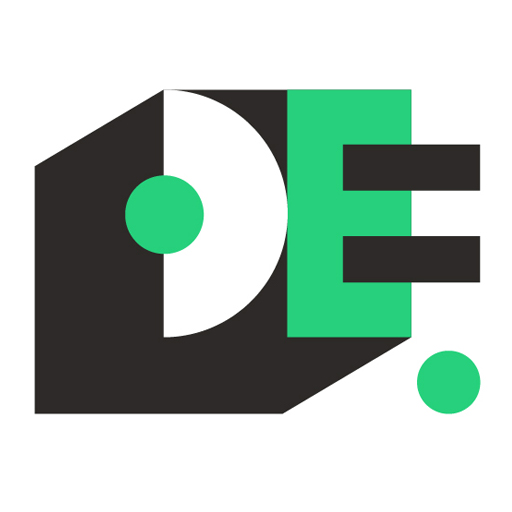Catalyst research is clear: Over half of frontline employees are at risk of leaving their jobs. However, when companies invest in building workplaces that support frontline employees, these workers are up to three times more likely to report high commitment, engagement, and job satisfaction.
As HR and DEI leaders seek to meet these new expectations, one powerful tool emerges: Employee Resource Groups (ERGs). At Catalyst’s enERGize virtual event, thought leaders from various industries emphasized the importance of ERGs in tackling key issues on the front line.
ERGs offer a structured way for companies to listen to employees, understand their needs, and address key challenges like retention and turnover. Omnia Helbah, Director of Equity, Diversity, and Inclusion at Compass Group Canada, emphasized that “ERGs are the voice of the employee and the listening ear for the organization,” describing their vital role in providing insights into where organizations are succeeding and where gaps remain.
Helbah underscored the power of the “Listen, Learn, Act” model: Listen to the concerns of frontline employees, learn through workshops and training, and finally, act on solutions that resonate with the workforce. ERGs allow companies to dig into frontline insights and offer learning opportunities to everyone, particularly managers and leaders.
By offering employees a platform to share their experiences, ERGs also provide a feedback loop that senior leaders can use to improve workplace practices and create a more engaged workforce. Involving leaders in ERG activities—whether as sponsors or participants—gives them new ways to relate to employees on a more personal basis.
Meet frontline employees where they are
One of the main challenges in leveraging ERGs for frontline employees is finding ways to engage them effectively. This is especially true in industries like manufacturing, construction, and retail, where shift work and limited access to email and other digital communications can make participation difficult. Michelle Berrett, Senior Automation Technician at Pfizer, discussed the need for flexible and creative solutions to engage these employees, such as scheduling events during lunch hours or shift changes and using various mediums like posters or verbal announcements during stand-ups.
Maria Peri, DEI Leader at Cargill, highlighted the importance of tailoring solutions to the unique needs of frontline employees. “Frontline employees work in shifts—so who can cover when somebody attends an ERG event? How do we ensure that employees during all shifts receive the same participation opportunities?” Local onsite leadership support is crucial to help create space and time for these employees to participate.
Additionally, companies can make ERG activities more exciting and appealing to employees by offering simple, tangible incentives. As Devendree Ankiah, ERG Team Leader and VP of Corporate Social Responsibility at Rockwell Automation, noted, “Something as easy as providing snacks at events can help create community and make employees look forward to them.”
Help all colleagues feel valued
ERGs can be cultural catalysts. They help to foster an inclusive workplace where employees can share stories and build relationships. Helbah highlighted that for frontline workers, hearing the experiences of others who look like them or share similar backgrounds “helps them to see the art of the possible.”
Berrett echoed this sentiment, sharing her experience creating an ERG to help her peers. “I felt so much joy living authentically that I wanted to create an environment where others could do the same, no matter what that means to them,” she said. Through ERGs, companies can make cultural shifts toward greater inclusion and a more human workplace, ultimately benefiting employees and the organization.
Allyship and cross-functional relationships also flourish in ERGs. Peri shared that her company’s women’s ERG became a platform where frontline employees could connect over shared experiences, and men colleagues began to lean in as allies, learning how to better support their peers.
Build pathways for growth and development
Employees engaged in ERGs have opportunities for personal and professional growth, often gaining access to senior leaders and visibility across the organization. Ankiah highlighted how her participation in ERGs allowed her to expand her skill set beyond her current role.
“Being part of an ERG meant I was connected, not just in South Africa where I’m based, but the wider global organization,” she said. ERG involvement allowed her to develop leadership skills in a low-risk environment, explore new career opportunities, and gain exposure to senior leaders. This ability to “try out” different roles, whether in leadership, outreach, or other areas, gives employees a unique opportunity to develop new competencies in a safe space.
For frontline workers, who may not always have access to leadership opportunities or professional development programs, ERGs can provide a critical pathway for growth. This not only benefits individual employees but also strengthens the organization by cultivating a more skilled and engaged workforce.
ERGs are important tools to engage employees, strengthen DEI initiatives, and help meet business goals. They can also help organizations address critical frontline workforce challenges like retention, engagement, and productivity. By serving as a feedback loop for leadership, fostering an inclusive workplace, offering growth opportunities, and providing new ways to engage frontline employees, ERGs can transform your workplace and create lasting cultural and business benefits.
As HR, DEI, and corporate leaders look for solutions to support their frontline employees, integrating ERGs into their organizational strategy not only benefits employees but also strengthens the company as a whole.
If you want more resources and insights on supporting frontline employees, check out Catalyst’s Moments That Matter training to support and upskill frontline managers.




